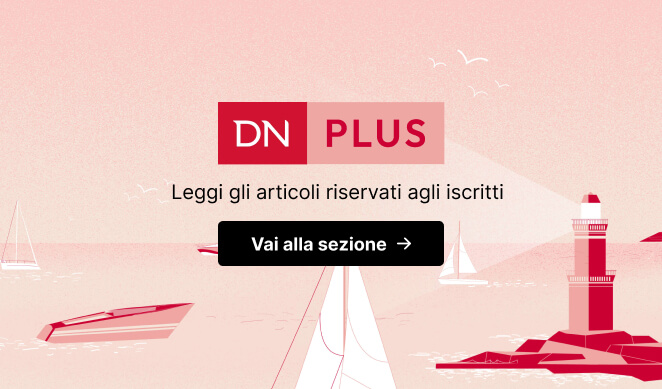Insurance Special: Legal Protection
The need to find insurance cover that is complementary to “traditional” policies is certainly one of the most highly felt needs in the nautical industry. With this special article we talk about legal protection, trying to highlight the advantages, limits and opportunities.

Insurance Special: Legal Protection
The need to find insurance cover that is complementary to “traditional” policies is certainly one of the most highly felt needs in the nautical industry. With this special article we talk about legal protection, trying to highlight the advantages, limits and opportunities.
Our special articles on insurance continue: this time the focus is on Legal Protection Insurance, a type of insurance cover that could have interesting applications even in the maritime sector, it is therefore good to know a bit more about it.
In the maritime world, Legal Protection cover has seen a discreet expansion, both for pleasure boating and in shipping. This cover has intercepted both the needs of professional operators (engineers, consultants, mediators, managers, company administrators, etc.) and maritime personnel (commanders, directors, etc.).
This being said, however, it is important to first look at the definition. Legal protection insurance (cf. Art. 173 of the Italian Code of Insurance) is defined by our provision as “the contract with with the insurance company, upon payment of a premium, is obligated to take on legal or consultancy expenses or to supply services of other kinds, needed by the policy holder to defend their interests in court proceedings of any kind, or out of court proceedings”.
Reading the provision description, it is fairly clear that this covers an ample range of cover and operations. However, this particular insurance solution could have specific limits, which are common in many of the policies.
These limitations, in general, but certainly not all, could, for example, be:
- Caused by ascertained wilful misconduct, meaning criminal proceedings in which the policy holder is accused of criminal conduct.
- Caused by presumed wilful misconduct, like tax proceedings or non-accidental events regarding environmental pollution.
Even though in general, these are the limitations, some policies can also include a forfeit anticipation of expenses, or through other methods, contemplating a certain “protection” even in criminal court.
Referring again to the Italian Code of Insurance, Article 163 poses a specific “limit of applicability” which is worth quoting in full:
“The protocol in this paragraph does not apply to legal protection insurance regarding controversies deriving from the use of seafaring vessels or otherwise connected to their use and the activity exercised by the insurance company for public liability to contrast the action of the damaged party pursuant to Art. 1917 of the Civil Code”.
When reading this article, it is objectively understandable that there is a “limit of applicability” but only in the cases in which one wanted to use legal protection cover in order to contrast the actions of the damaged party by correlating it to a public liability.
In any case, legal protection cover is, as we know, often offered as an accessory guarantee, maybe alongside building and car cover.
LEGAL PROTECTION: OPPORTUNITIES AND EVALUATIONS
Activities which could require legal protection cover are many, both at a professional and entrepreneurial level.
A first and immediate example can be made for professions, here legal protection cover can be integrated with professional public liability. Among these professions are, for example:
- Consultants and engineers
- Naval designers and builders
- Mediators
- Claim agents
- Inspectors and certifiers
- Financial consultants
- Captains and sailors in general
For these professional categories there could still be an objective difficulty in obtaining cover for professional public liability (and/or legal protection) from traditional insurance companies.
To remedy these criticalities there are certain bodies, also specialized in the marine sector, who can offer tailor made cover specifically for professionals in the naval industry. Among these is ITIC, a sort of P&I for professionals working in Marine, Aviation and Rail, some underwritten by Lloyd’s and others, almost all of them working from the United Kingdom.
For entrepreneurial activities (shipyards and storage, marine, charter companies, management companies, etc.) and for certain figures, like directors and managers (D&O), there are many, opportunities given by a number of insurance cover policies specifically created for the sector.
Even in this case there are particular packages which can integrate with professional public liability and legal protection, often in addition to specific policies created for businesses, both directly (for example operators, charters, shipyards etc.) and indirectly (for example financial institutions) working in the maritime cluster.
As mentioned previously, a good legal protection policy can certainly offer, in addition to more serenity, also cover for all those expenses that, in case of accident or claims, will need to be put forward.
Having a maximum coverage for legal and/or consultancy costs can certainly increase the effectiveness of one’s actions, especially by avoiding the expense of otherwise necessary amounts in order to support or manage the business.
Another very important point is in the possibility of being able to choose one’s own consultants (the Libera Electio concept): this allows the policy holder to use their own trusted consultants or chose ones whose skill and professionalism are well known and/or certified.
Lastly, but not less important, it is worth dedicating a few lines to the choice of policy. Like any other insurance product applied to a very specific context like the maritime sector, it is certainly important to identify a company (or underwriter) who has a certain knowledge and/or experience in the field.
Often, many policy holders, at the moment of the “accident” find it hard to make their claims. Indeed, many procedures can be entrusted to fiduciaries (often legal) who in fact may have no specific skills in the maritime industry, something which oftentimes translates into a mistaken evaluation of the specific problems of the policy holder or, worse, the complete lack of any assistance at all.
One last piece of advice is to carefully analyse the policy contract. Carry out a minute analysis, maybe with the assistance of a specialized consultant, of the various clauses, excesses and limitations, can help you understand, before signing, the limits and advantages of a specific policy.
Daniele Motta
Topics: insurance special, italian nautical insurance, legal cover



